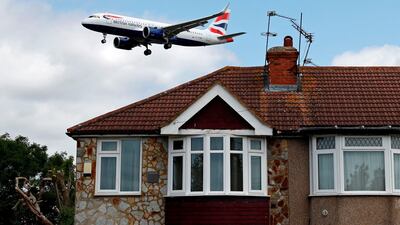British Airways owner International Consolidated Airlines Group (IAG) sunk to a third-quarter operating loss of €1.3 billion ($1.51bn) on Friday with revenue plunging 83 per cent, as the company’s chief executive called for all governments to adopt pre-departure Covid testing to boost travel.
The FTSE 100 listed IAG, whose stable of airlines includes BA, Spain’s Iberia and Irish carrier Aer Lingus, said its total operating loss for the quarter ended September 30 was €1.92bn, including fuel hedges and restructuring costs at BA and Aer Lingus. Revenue in the third quarter also fell to €1.2bn down from €7.3bn a year ago.
“These results demonstrate the negative impact of Covid-19 on our business but they’re exacerbated by constantly changing government restrictions. This creates uncertainty for customers and makes it harder to plan our business effectively,” Luis Gallego, IAG’s chief executive, said in a statement.
“We are calling on governments to adopt pre-departure testing using reliable and affordable tests with the option of post-flight testing to release people from quarantine, where they are arriving from countries with high infection rates. This would open routes, stimulate economies and get people travelling with confidence.”

A resurgence in Covid-19 infections is dampening an already slow winter season, causing airlines to pull back on capacity plans as they search for ways to reduce expenses.
The company said government furlough programmes and job cuts helped to hold down operating costs in the third quarter. But last week it said it would only operate 30 per cent of its usual schedule in the three months to December 31.
IAG has slashed about 10,000 jobs at British Airways and Aer Lingus along with reducing supplier costs since the start of the pandemic. The company also completed a €2.74bn capital increase in the quarter, with the money received this month, to boost its liquidity during these challenging times.
The company said passenger capacity in the third quarter was 78.6 per cent lower than the same period last year.
Mr Gallego said when the company opens up routes, there is pent-up demand for travel, however, he expects it to take until 2023 for passenger demand to recover to 2019 levels.
“The Group has made significant progress on restructuring and we continue to reduce our cost base and increase the proportion of our variable costs,” he said.
Analysing IAG’s nine-month results, Neil Shah, director of research at Edison Group, said the company's outlook was not promising after it reported a loss after tax of €5.57bn in the nine months to September 30, compared to a profit of €1.1bn a year ago.
“Investors are bracing themselves for a tough Q4," said Mr Shah. "With quarantine restrictions returning across Europe, the threat of falling number of passengers has returned. Although the company has gone ahead with internal changes to manage liquidity in order to keep itself in a sustainable position, the outlook for the company and sector as a whole in the short term doesn’t look particularly promising.”
Earlier this week, airports body ACI Europe said an estimated 193 European hubs face going bust as a result of the pandemic. The airports, which provide 277,000 jobs and generate €12.4bn in collective annual revenue, are considered "at-risk airports," with the threat of mass closures posing a significant threat to Europe's air transport system.
Adam Vettese, analyst at multi-asset investment eToro, said bleak updates have become commonplace for airlines since the start of the pandemic.
“British Airways’ parent has predicted negative cash flows next quarter as a result of it being only able to fly at 30 per cent of its usual capacity. And now countries such as France and Germany are once again going into lockdown, it’s likely that capacity will be severely constrained for some time," he said.
“Carriers have such high ongoing costs that they need to fly in large volumes just to break even. The trouble is that it’s impossible to reach those sorts of volumes at the moment. At this rate we will be lucky to enter the new year without any big-name casualties in the global airline industry.”


